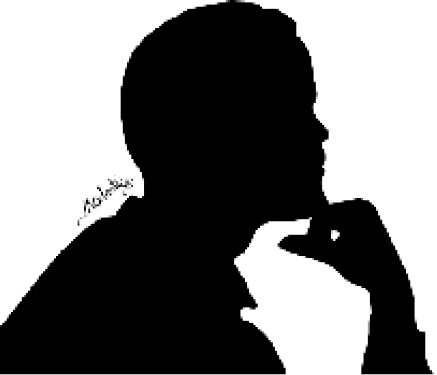I am diagnosed with Bipolar Disease
I will like to commend your effort in promoting health in Nigeria. I actually grew up to see your column running every week for over 15 years now. I am diagnosed with Bipolar disease; I will like to know more about the problem. I hope that someday you will commence face to face health counselling […]

I will like to commend your effort in promoting health in Nigeria. I actually grew up to see your column running every week for over 15 years now. I am diagnosed with Bipolar disease; I will like to know more about the problem. I hope that someday you will commence face to face health counselling as Nigerians really need such services.
Cathy V.
Thanks Cathy for your goodwill message. Bipolar Disease can be defined as a mental disorder characterised by extreme shifts in mood, with fluctuations in energy and activity levels, according to Medical News Today. During these abnormal shifts, the patient commonly finds it difficult to complete everyday tasks. Bipolar disorder used to be known as manic-depressive illness. It is a serious mental illness that can destroy relationships, undermine career prospects, and seriously affect academic performance.
Bipolar disorder has nothing to do with the ups and downs we all experience in life; it is much more severe, debilitating, and incapacitating. The good news is that it is treatable; with proper care and the right medication patients can perform well at work and academically and lead full, productive lives.
Causes of bipolar disorder
Bipolar is more likely the result of many factors acting together:
1. Genetics: People with a blood relative who has bipolar disorder have a higher risk of developing it themselves.
2. Biological traits – experts say that patients with bipolar disorder often show physical changes in their brains.
3. Brain-chemical imbalance – neurotransmitter imbalances play a key role in many mood disorders, including bipolar disorder.
4. Hormonal problems – hormonal imbalances might trigger or cause bipolar disorder.
5. Environmental factors – abuse, mental stress, a “significant loss,” or some other traumatic event may contribute to bipolar disorder risk.
Symptoms of bipolar disorder
1. A feeling of being on top of the world, exhilaration, or euphoria.
2. Over-self-confidence, an inflated sense of self-esteem.
3. The patient’s judgment may be impaired.
4. The patient talks a lot, and very rapidly.
5. Thoughts come and go quickly (racing thoughts). Sometimes, bizarre ideas come to the patient’s mind, and they are acted upon. In this phase, the individual may be extremely forthcoming, sometimes aggressively so.
6. The individual is more likely to engage in risky behavior, including promiscuity (higher libido), abuse illegal drugs and/or alcohol, and take part in dangerous activities.
7. Easily distracted.
8. Missing work or school and/or underperforming.
Symptoms during depressive episodes
1. A feeling of gloom, blackness, despair, and hopelessness.
2. Extreme sadness AND in severe cases, the patient will think about ending their life, and may act on those thoughts.
3. Insomnia and sleeping problems.
4. Anxiety about trivial things.
5. Guilt – a feeling that everything that goes wrong or appears to be wrong is their fault.
6. Eating patterns – some people eat more, others eat less.
7. Weight loss or weight gain.
8. Extreme tiredness, fatigue, listlessness.
9. Inability to feel pleasure with activities or interests that were usually enjoyed.
10. Easily irritated – this could be triggered by noises, smells, tight clothing, and other things that would usually be tolerated or ignored.
How to diagnose Bipolar disorder
A psychiatrist or psychologist bases the diagnosis on self-reported experiences of the patient’s behavior abnormalities reported by household members, close friends, work colleagues, and teachers, as well as any secondary signs detected by other healthcare professionals.
Treatment for bipolar disorder
• The aim of treatment for bipolar disorder is to minimize the frequency of manic/depressive episodes and to reduce the severity of symptoms so that the patient can lead a relatively normal and productive life.
• If the symptoms are left untreated, a bout of depression/mania can persist for up to one year. With treatment, however, improvements are seen within the first 3-4 months.
• Treatment for bipolar disorder includes a combination of different therapies, which may include medications and physical and psychological interventions.
• Psychotherapy – the aim is to alleviate core symptoms, to help the patient identify and recognize the key triggers, minimize negativity in relationships, recognize the first symptoms that indicate the onset of an episode, and work on the factors that help maintain the “normal” periods for as long as possible.
